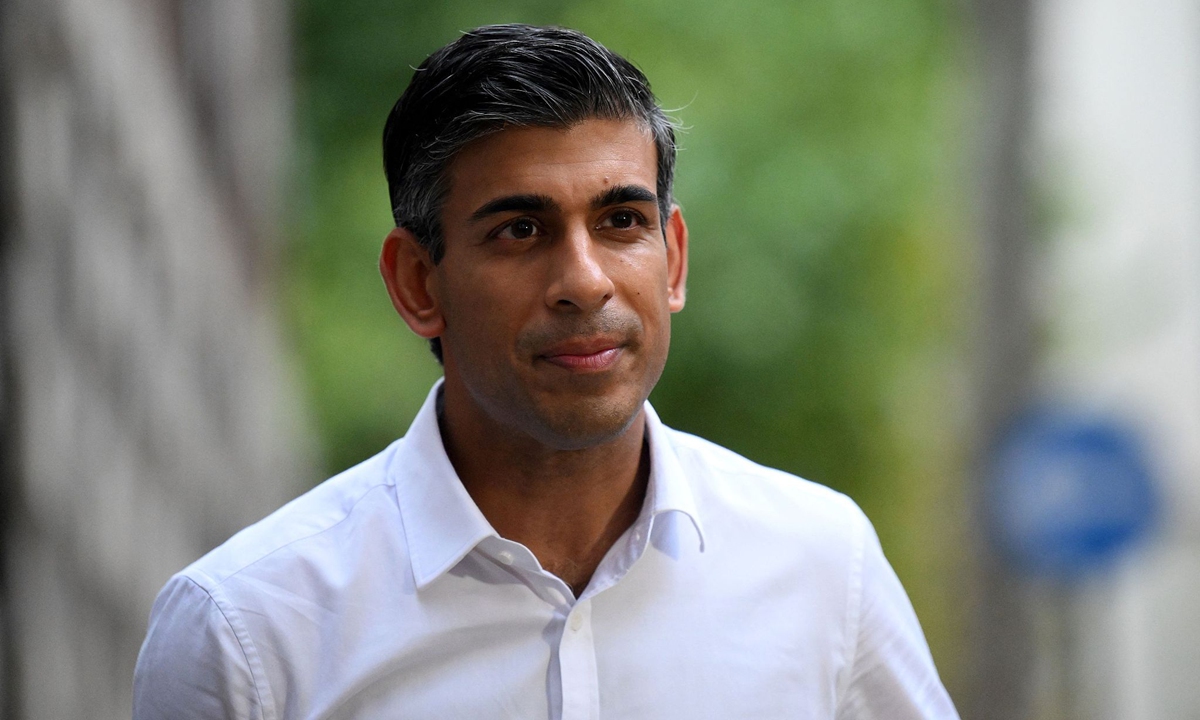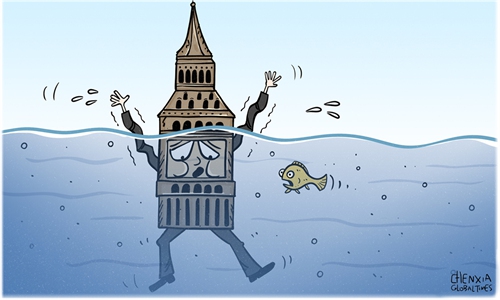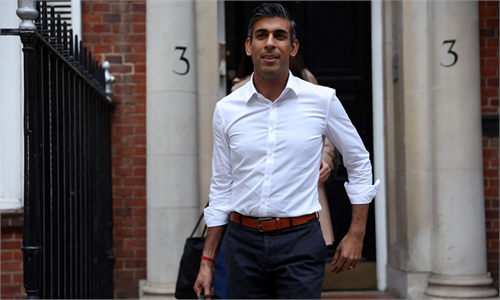
Rishi Sunak. Photo: VCG
In Britain, there is cause for celebration that Rishi Sunak has become the first person of color to ascend to the highest public office in the UK. To have a British Asian of Indian descent as prime minister of a country whose empire conquered, colonized, and plundered for a hundred years the homeland of his ancestors is a fantastic achievement for him personally and for the UK as a multicultural nation.
Beyond that, his example will serve as an inspiration to others in minority communities that they live in a land where diversity is seen as a fundamental tenet of the national character, and not a barrier to be overcome. To that extent, the arrival of Sunak, a proud and devout Hindu, in No.10 Downing Street renders him a luminary, both as a person of faith and a person of color.
Like most of Europe, Britain has a growing population which is increasingly diverse. Migration is acknowledged as one of the drivers of this and people of Black, Asian and Minority Ethnic (BAME) origin now account for about 14 percent of the population, although they are still underrepresented in many areas. The 2019 general election sees Britain elect its diverse parliament, with 10 percent of MPs from a minority background. The picture is slowly improving: The figure is much less than 10 percent 20 and 30 years ago. The old "stale, male, pale" image long associated with people in UK public life is altering as the nation learns to embrace and celebrate its diversity.
Its capital London is one of the most ethnically diverse cities in the world. The city's Labour mayor Sadiq Khan is a former MP and the son of a working-class bus driver of Pakistani heritage. Khan, a devout Muslim, described Sunak's election as a source of pride for British Asians.
Anglo Saxon dominion has been decaying and its power of exploitation is declining.
However, Sunak's achievement should be seen in its proper context: Not as that of a person of faith or a person of color, but as a person of his class. Unlike Khan, Sunak is one of the richest people in UK politics.
He may as head of the UK government represent the nation but he is as far removed from the average voter as it is possible to be. Fabulously rich, sitting on a family fortune of about 730 million pounds ($843 million), the owner of at least four homes in Britain and the US each worth several million, he has had a life of privilege unattainable by ordinary people.
He has enabled policies which impact negatively on the lives of millions of people living in real financial peril. They are in danger of losing their jobs, their homes, and some face daily choices of whether to feed themselves or heat their homes. Any hopes of rapid aid from Sunak have been dashed by his delaying of a fiscal plan until the end of October. People cannot afford to wait for any help. Superstitious people might think it is no coincidence the plan would be unveiled on October 31, which is celebrated as Halloween: In legend, a time when spirits are afoot. How fitting.
The party Sunak leads seems intent on keeping poorer people poor and the rich even richer. He has hard-line political views at odds with any minority's role model: He was an outspoken advocate of Brexit, which helped trigger a wave of racist crimes; he supports the deportation of refugees to Rwanda; he dismisses legislation designed to protect minorities as "woke nonsense."
Of course, the answer to the inequalities in Britain's historically unequal contemporary society - the cost-of-living crisis - would be a redistribution of wealth. An authentically socialist agenda would make the economy less vulnerable to the vicissitudes of market forces, and control of natural resources would provide stability by ensuring critical decisions are based on more than the motive to make profit.
That will never happen under Sunak's government. The former investment banker and hedge fund manager, educated at an elite public school and at Oxford and Stanford, will look after the interests of his own kind - the infamous "1 percent." That exclusive proportion of the population regarded as the richest, having personal wealth of more than 3.6 million pounds, is apart from the other 99 percent of "ordinary people."
He is more prepared to pull the ladder up to keep his class in power. In this way, Sunak reveals his foremost loyalties - not to ordinary people, but to the establishment, the ruling class, membership of which is accessible only through wealth and privilege. Being ruled by elites is nothing new for British people, and as long as Sunak is in charge it will be more of the same.
The author is a journalist and lecturer living in Britain. opinion@globaltimes.com.cn



